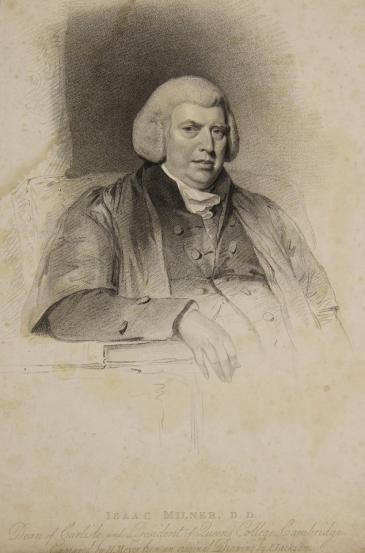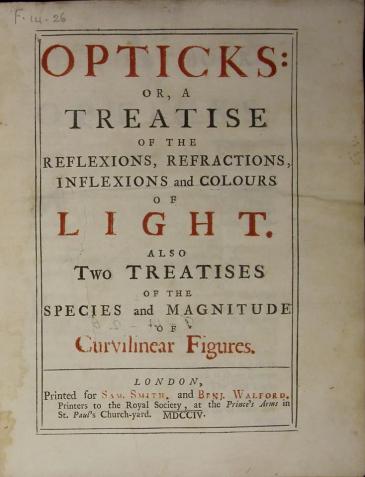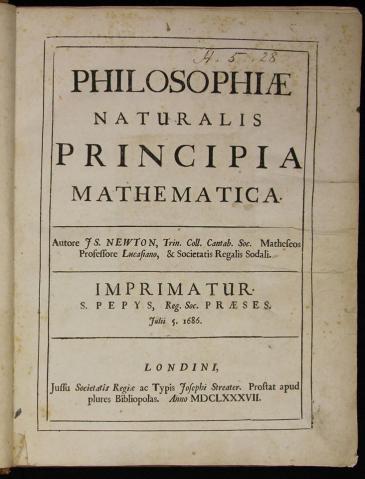Isaac Milner and the Enlightenment of late Georgian Queens’
If you missed last term’s exhibition find out about one of the most influential and remarkable figures ever to have been President of Queens’ via our new Isaac Milner Facebook album.
Isaac Milner (1750–1820) was a controversial figure and brilliant natural philosopher who helped to define the progress of both Queens’ and the University during his lengthy tenure as Queens’ president (1788–1820) and as vice chancellor. Against the feverish political atmosphere that accompanied the French Revolution Milner, the ‘declared foe of infidels and Jacobins’ and close friend of William Wilberforce, sought to place the ’sound principles of Newtonian philosophy’ at the heart of Cambridge thinking.
The extensive collection of Isaac Milner’s books bequeathed by him to Queens’ reflects the peculiarly English process of ‘Enlightenment’ that had taken place in Cambridge during the late Georgian period. In contrast to the celebrated schism that pitted modern philosphes against Church and Ancien Régime in eighteenth-century France, Cambridge saw a ‘holy alliance’ between science and established institutions. In this the philosophy of that most eminent of Cambridge alumni, Sir Isaac Newton, played a central part. Innumerable pamphlets and books invoke Newtonian philosophy as a means to protect the interests of the University’s ancient institution, ‘true religion’, and the country. In these Newton’s mathematical cosmology is presented as an invincible weapon against atheism, upholding an actively intervening Creator who sustains Nature. In the Enlightenment period and after, this conception of Newtonianism was assimilated into the Cambridge teaching and philosophy by numerous Newton followers, amongst whom Isaac Milner was particularly influential.
Alongside Milner’s own works, this exhibition includes his first editions of Isaac Newton and other Cambridge philosophers, anti-slave trade pamphlets, and sixteenth-century copies of Erasmus and others associated with the Reformation. For Milner, all, in different ways, supported his belief in ‘British Liberty in Church and State’ as an antidote to insurrection and the politics of revolution.


